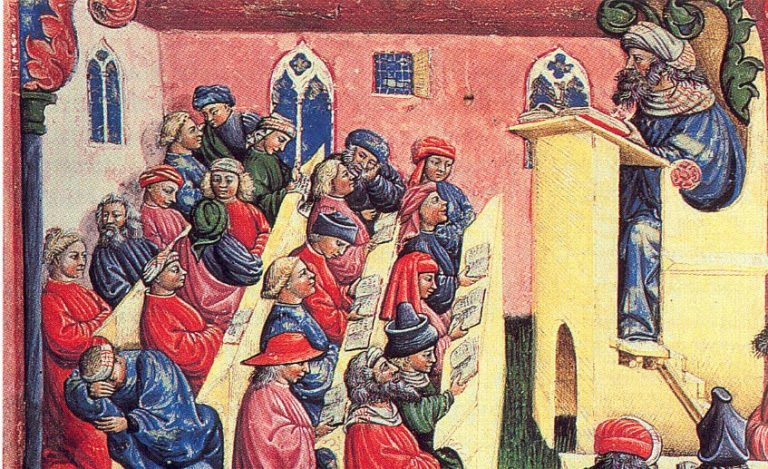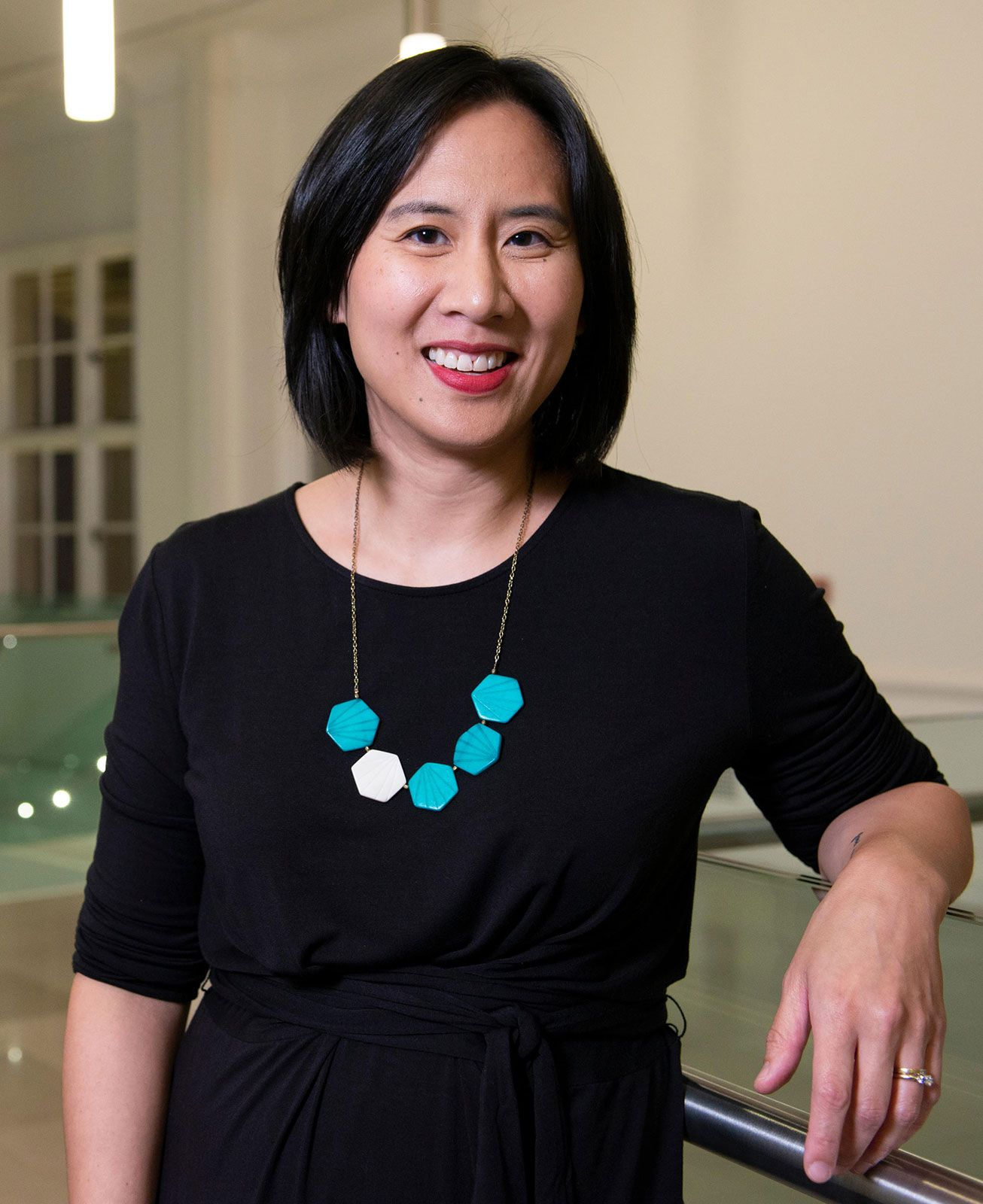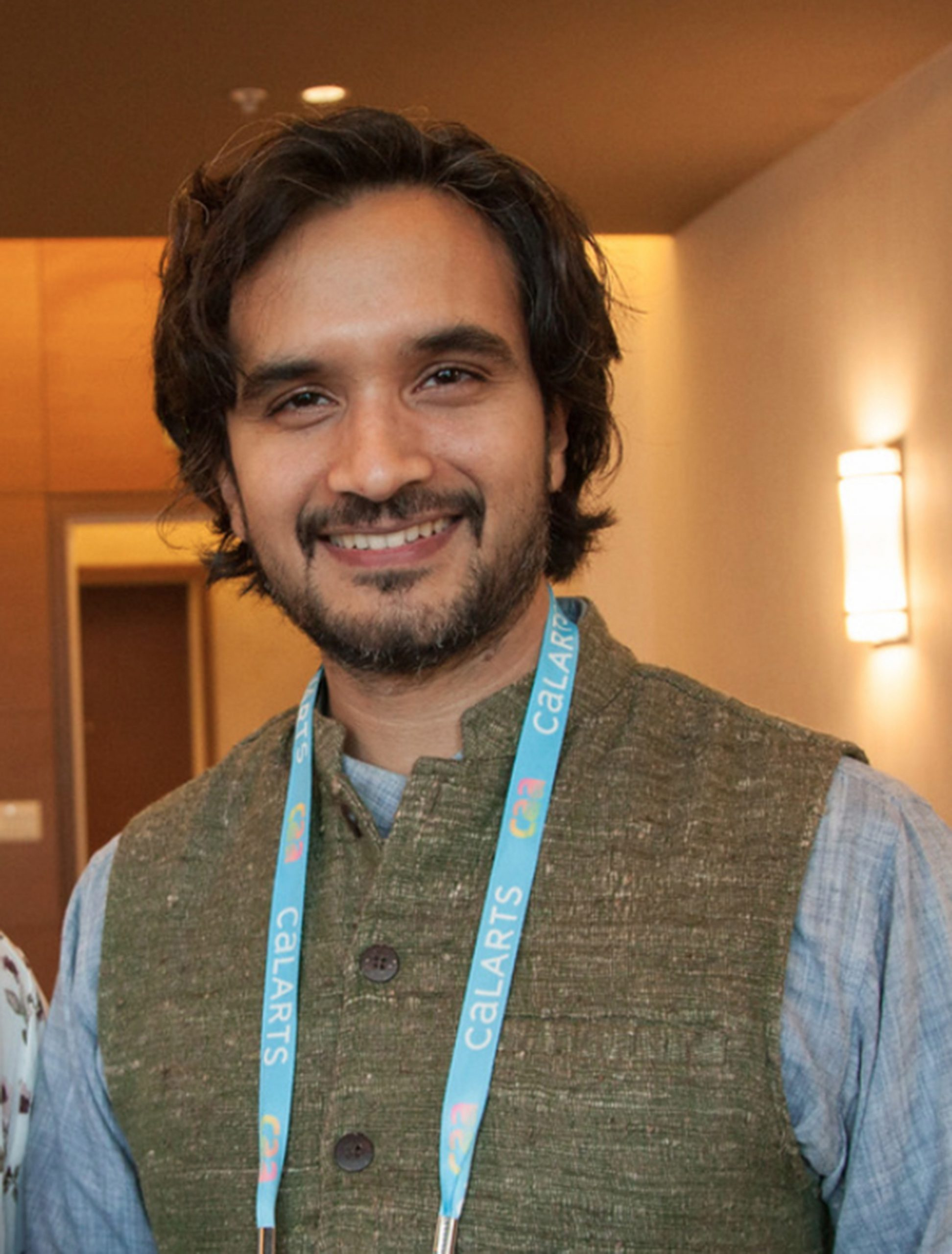The medieval studies conference recently held at Harvard marks a significant event in the academic calendar, celebrating over 100 years of scholarly tradition. This distinguished gathering is a premier destination for medievalists, drawing more than 800 scholars from around the world to share their research and insights. Hosted by the Medieval Academy of America, the event featured a diverse lineup of presentations, workshops, and discussions that spanned various aspects of medieval life, including the impact of figures like Chaucer on modern literature. As participants explored themes of interdisciplinary medieval research, they engaged in thought-provoking dialogues that highlighted the evolution of the field. Engaging with panels and keynotes, attendees reflected on the significance of their work in relation to the past and the future of medieval studies.
Recently, Harvard played host to a celebrated convocation of medieval scholars, a milestone event that underscores the relevance of historical inquiry today. This occasion attracted a multitude of academics and enthusiasts passionate about exploring the intricate tapestry of the medieval period, from literature to trade practices. Scholars exchanged knowledge on topics ranging from the legacies of iconic writers like Chaucer to the intricacies of medieval global trade routes. The conference’s emphasis on diverse disciplinary collaborations fosters a richer understanding of the medieval era and its continuing influence on contemporary thought. As individuals from various backgrounds come together, this intercultural dialogue sparks new interpretations and insights into the complexities of our shared history.
Celebrating a Century of Medieval Studies at Harvard
The Medieval Academy of America’s 100th annual meeting held at Harvard University marked a significant milestone in the field of medieval studies. Over 800 scholars from various parts of the globe converged in Harvard Yard, engaging in enriching discussions, workshops, and presentations. This conference showcased the evolution and interdisciplinary nature of medieval studies, highlighting its relevance not only in historical contexts but also in contemporary debates about literature and society. Attendees, including prominent figures like Sean Gilsdorf, emphasized the importance of such gatherings in pushing scholarly boundaries and fostering collaborations across different disciplines.
The event served as an intellectual feast where medievalists explored subjects ranging from medieval trade to the impact of Chaucer on modern literature. With over 500 speakers presenting their work, attendees were treated to a wide array of topics, underscoring the richness of medieval scholarship. Initiatives like the full-day pedagogy workshop on teaching the Global Middle Ages represent a progressive step towards inclusivity in the field, as scholars are encouraged to adopt a more global perspective that transcends traditional geographical limitations.
Interdisciplinary Trends in Medieval Research
One of the most striking aspects of the recent medieval studies conference was the increasing interdisciplinary focus within the field. Scholars are now more than ever applying methods and theories from fields such as sociology, anthropology, and digital humanities to analyze medieval texts and artifacts. The engagement with varied disciplinary approaches not only enriches the understanding of medieval culture but also invites fresh interpretations of classic works. Presentations by Ph.D. candidates like Elena Shadrina and Emily Sun illustrated how new insights can emerge when medieval studies intersect with contemporary methodologies.
Such an interdisciplinary approach is vital, particularly as it allows for deeper explorations of topics like medieval trade agreements and literary reinterpretations. For instance, the examination of medieval Venetian commerce by Shadrina utilized elements of legal studies, while Sun’s analysis of ‘Beowulf’ from a modern feminist perspective reflects how these ancient texts can speak to current societal issues. This confluence of disciplines is indicative of the broader transformation in medieval studies, fostering discussions that are not only scholarly but also socially relevant.
As scholars from diverse backgrounds engage with medieval studies, the field becomes richer and more resilient, paving the way for innovative research paths that anticipate the needs of future academia.
The Impact of Chaucer on Modern Literature
Geoffrey Chaucer’s influence on contemporary literature is a recurring theme in modern medieval studies. This was particularly highlighted at the recent conference with presentations drawing parallels between Chaucer’s works, such as ‘The Canterbury Tales,’ and modern narratives. Scholars like Fernanda García-Oteyza eloquently articulated how Chaucer’s exploration of rumor and truth in ‘The House of Fame’ resonates with modern concerns regarding misinformation and narrative authenticity. By engaging with Chaucer’s text, contemporary authors grapple with age-old questions about the integrity of storytelling and the role of the author in shaping public discourse.
The interdisciplinary dialogue sparked by Chaucer’s themes demonstrates the enduring relevance of medieval literature. It serves as a testament to how figures from the past can provide critical insights into present-day dilemmas. The resonance found in Chaucer’s narrative style, characterized by its complexity and engagement with reality, is evident in contemporary literary works, making a strong case for continued study of medieval texts. As scholars dissect these connections, they shed light on the ways in which medieval literature shapes modern artistic expression and cultural critique.
The Role of the Medieval Academy of America
The Medieval Academy of America has played a pivotal role in the advancement of medieval studies over the past century. Established in the early 1920s, the Academy stands as a cornerstone of scholarship, fostering a vibrant community of medievalists. The recent conference at Harvard illustrated its enduring legacy, as scholars gathered to celebrate both historical achievements and envision future directions for the field. This gathering has reinforced the Academy’s commitment to promoting interdisciplinary research and collaboration among different academic disciplines.
The Academy’s efforts to provide a platform for diverse voices in medieval studies were particularly evident in the variety of topics presented at the conference, reflecting the field’s evolution in scope and relevance. By bringing together experts from various geographical and disciplinary backgrounds, the Medieval Academy of America ensures a holistic approach to the study of the Middle Ages. The continued success of such events signals a bright future for medieval studies, as the Academy remains dedicated to nurturing the next generation of scholars.
Global Perspectives in Medieval Scholarship
The recent medieval studies conference highlighted an exciting trend towards global perspectives in the study of the Middle Ages. With presentations that spanned multiple cultures and regions, including Africa, Scandinavia, and the Islamic world, scholars are increasingly recognizing the interconnectedness of medieval experiences across different societies. This shift aligns with a growing emphasis on diversifying medieval studies, allowing researchers to move beyond Eurocentric narratives and explore the broader implications of medieval culture worldwide.
Panel discussions and workshops emphasized the importance of understanding medievalism in a global context, showcasing the diverse methods scholars adopt to study these rich histories. This emerging focus not only broadens the scope of medieval studies but also enriches the narrative by incorporating interdisciplinary insights. Embracing these global perspectives fosters a comprehensive understanding of how medieval societies interacted, influenced one another, and contributed to the collective heritage that informs our world today.
Networking Opportunities for Emerging Scholars
The Medieval Academy’s annual meeting serves as a critical networking hub for emerging scholars in the field. For attendees like Emily Sun and Colin Brady, the conference offers invaluable opportunities to connect with established experts and peers alike. Engaging in discussions, sharing research, and receiving feedback are integral components of academic development, particularly for those at the early stages of their careers. The supportive environment created by the Academy encourages collaboration and mentorship, essential for nurturing the future of medieval studies.
Such interactions often lead to fruitful collaborations and can significantly influence a scholar’s trajectory. The presence of a diverse array of professionals—from graduate students to tenured professors—creates a dynamic atmosphere ripe for innovative ideas and projects. These networking opportunities are not only beneficial for individual research endeavors but also serve to strengthen the medieval studies community as a whole, promoting a culture of collective advancement.
The Future of Medieval Studies
As the Medieval Academy of America celebrated its centennial, discussions at the conference turned towards the future of medieval studies. Scholars contemplated the evolving nature of the field and the research questions that are poised to shape its trajectory in the next century. The integration of technology into scholarship, alongside a greater focus on interdisciplinary collaboration, is likely to lead to groundbreaking research that challenges traditional methodologies. By embracing change and adapting to new academic landscapes, medieval studies can continue to thrive.
Furthermore, the ongoing dialogue about the relevance of medieval literature in contemporary culture underscores the potential for medieval studies to engage with modern societal issues. Scholars are inspired to explore how themes from the Middle Ages resonate in today’s world, making their work not only relevant but also impactful. As the field continues to expand and diversify, it is essential for scholars to remain engaged with the wider academic community, fostering discussions that will propel medieval studies into promising new directions.
Workshops and Presentations: A Showcase of Scholarship
Workshops and presentations during the conference provided a vibrant platform for sharing new research in medieval studies. These sessions covered a wide range of topics, highlighting the breadth and depth of contemporary scholarship. Each presentation presented an opportunity for critical engagement and discussion among attendees, further enriching the academic experience. Scholars like Elena Shadrina and Colin Brady demonstrated the spirited research taking place in various subfields, showcasing how historical analyses can contribute to our understanding of broader cultural phenomena.
The emphasis on hands-on workshops also played a significant role in the conference, encouraging participants to actively engage with research methods and pedagogical approaches. Such practical sessions not only enhance participants’ teaching skills but also inspire fresh perspectives on how medieval studies can be represented in educational settings. By fostering a culture of learning and collaboration, these workshops reinforce the fundamental connections between scholarship and pedagogy, vital for the continuation of the field.
Reflections on the Past: Celebrating Historical Achievements
As the Medieval Academy of America reflects on a century of accomplishments, the recent conference served as a perfect opportunity to celebrate historical achievements in the field of medieval studies. The rich academic traditions established over the years have set a strong foundation for current and future scholars. By honoring the numerous contributions made by predecessors in the field, scholars were reminded of the interconnected legacies that shape today’s medieval scholarship.
These reflections are not merely about acknowledging the past; they also serve to inspire future generations. By understanding the progression of medieval studies, current scholars can identify emerging trends and continue to build upon the groundwork laid by their predecessors. The celebration of historical achievements underscores the importance of maintaining a dialogue with the past, ensuring that the knowledge acquired over the past century continues to inform the future of medieval studies.
Frequently Asked Questions
What is the Harvard medieval studies conference?
The Harvard medieval studies conference is a prestigious gathering organized by the Medieval Academy of America, showcasing interdisciplinary research in medieval studies. It attracts scholars and medievalists from around the globe to share insights and foster dialogue on topics ranging from literature to history.
Who organizes the Medieval Academy of America’s annual meeting?
The annual meeting of the Medieval Academy of America is organized by the academy itself, with contributions from various experts like Sean Gilsdorf, the administrative director of the Committee on Medieval Studies at Harvard. This event has been a central hub for medieval scholars for over a century.
What topics are covered at the medievalists gathering?
At the medievalists gathering, participants explore a wide range of topics including medieval literature, trade agreements, and the global scope of medieval research. Recent sessions featured discussions on Geoffrey Chaucer’s work and its connections to modern literature, illustrating the interdisciplinary nature of medieval studies.
How does the medieval studies conference foster interdisciplinary research?
The medieval studies conference fosters interdisciplinary research by bringing together scholars from diverse fields such as history, literature, and cultural studies. This collaborative environment encourages innovative discussions and insights into the complexities of the medieval world, reflecting the evolution of research in this area.
Why is the Medieval Academy of America significant for scholars?
The Medieval Academy of America is significant for scholars because it serves as a premier platform for networking, sharing research, and discussing advancements in medieval studies. Its historical roots in Cambridge and Boston enhance its role as a pivotal venue for leading discussions in the field over the past century.
What can attendees expect at the Harvard medieval studies conference?
Attendees at the Harvard medieval studies conference can expect a rich program filled with workshops, presentations, plenary lectures, and opportunities for networking with leading scholars in medieval studies. This year’s conference featured over 500 speakers, showcasing the breadth and depth of research in the field.
How has the medieval studies conference evolved over the years?
The medieval studies conference has evolved significantly over the years by recognizing the increasing globalization of the field and adapting to new interdisciplinary approaches. Recent conferences highlight themes such as the Global Middle Ages, demonstrating a shift in perspective and an expansion of topics covered.
What is the importance of Chaucer’s work in the context of the medieval studies conference?
Chaucer’s work, particularly his influence on themes of truth and rumor, remains a focal point at the medieval studies conference. Discussions around his texts at these gatherings illustrate their relevance to contemporary issues, bridging the gap between medieval literature and modern societal concerns.
Who are some notable speakers at the medieval studies conference?
Notable speakers at the medieval studies conference often include esteemed scholars and Ph.D. candidates who present their groundbreaking research. Recent speakers included Elena Shadrina, who discussed medieval trade, and Emily Sun, who analyzed contemporary translations of Old English literature, showcasing the depth of expertise at the event.
What role do Harvard students play in the medieval studies conference?
Harvard students play an active role in the medieval studies conference by presenting their research, engaging in discussions, and networking with established scholars. Their participation reflects the vitality and future of medieval studies, as they contribute fresh perspectives on various topics.
| Key Aspect | Details |
|---|---|
| Event Overview | The Medieval Academy of America’s 100th annual meeting took place in March 2025 at Harvard, gathering over 800 scholars from 23 countries. |
| Sean Gilsdorf’s Remarks | The administrative director highlighted the evolution of medieval studies over the past century during his opening remarks. |
| Interdisciplinary Nature | Participants noted the diverse topics and interdisciplinary approaches represented at the conference. |
| Global Perspectives | Workshops and presentations addressed medieval cultures from various regions, emphasizing global methodologies in medieval studies. |
| Resiliency in Scholarship | Attendees shared experiences about the value of in-person discussions and networking after the isolation of the pandemic. |
Summary
The medieval studies conference is a significant occasion that highlights the rich history and future potential of medieval scholarship. Over the past century, we have seen transformative changes in how we engage with medieval texts, artifacts, and ideas. With a focus on interdisciplinary approaches and global perspectives, this year’s gathering at Harvard not only honored the past but also illuminated pathways for the future of the field. Conversations sparked during this conference promise to shape the next century of medieval studies and expand the diversity of voices within this scholarly community.



